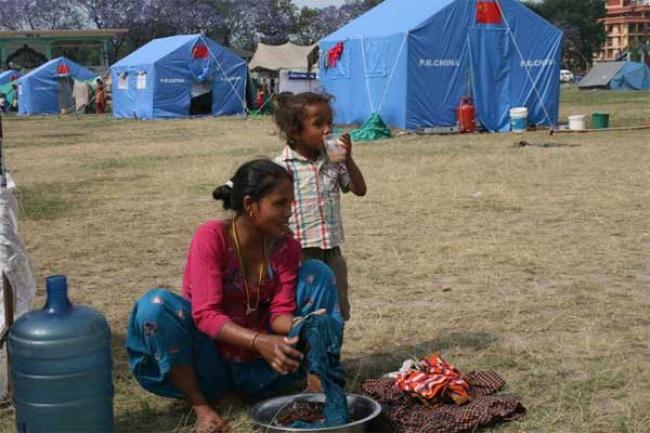Just Earth News 15 Mar 2016, 11:31 am Print

Photo: UNICEF/Sangharsha Bhattarai
“Most of their work is undervalued and unprotected, when domestic workers become old or injured, they are fired, without a pension or adequate income support. This can and must be redressed,” explained Isabel Ortiz, Director of the ILO Social Protection Department in a press release on the launch of the report, Social protection for domestic workers: Key policy trends and statistics.
Domestic work is considered a sector that is difficult to cover, partly because work is performed in private households and frequently for more than one employer. The occupation is also characterized by high job turnover, frequent in-kind payments, irregular wages and a lack of formal work contracts.
“Given that it is predominantly a female workforce highly subject to discrimination as well as social and economic vulnerability, policies to extend social protection to domestic workers are key elements in the fight against poverty and the promotion of gender equality,” said Philippe Marcadent, Chief of the ILO’s Inclusive Labour Markets, Labour Relations and Working Conditions Branch.
While the largest gaps in social security coverage for domestic work are concentrated in developing countries – with Asia and Latin America representing 68 per cent of domestic workers worldwide – the study finds that social protection deficits for domestic workers also persist in some industrialized countries.
In Italy, for example, some 60 per cent of domestic workers are not registered with, or contributing to, social security systems. In Spain and France, 30 per cent of domestic workers are excluded from social security coverage.
Social security is a human right for all
The study underscores that “there is no justification for domestic workers to remain excluded from social security, which is a human right for all.”
Senior ILO Economist Fabio Duran-Valverde stressed: “Looking at ways to improve the current coverage, there is no single protection model that works best for domestic workers everywhere. But mandatory coverage (instead of voluntary coverage) is a crucial element for achieving adequate and effective coverage under any system.”
However, because of the uniquely vulnerable situation of domestic workers, mandatory coverage will not be effective alone. Strategies should include – among other measures - fiscal incentives, registration plans, awareness-raising campaigns targeting domestic workers and their employers as well as service voucher mechanisms.
Domestic work should also be integrated into broader policies aimed at reducing informal work.
The study also warns that migrant domestic workers – currently estimated at 11.5 million worldwide – often face even greater discrimination. Around 14 per cent of countries whose social security systems provide some type of coverage for domestic workers do not extend the same rights to migrant domestic workers.
- UN’s chilling 2024 finding: Women are being killed every 10 minutes — Not by strangers!
- Argentina witnesses mass protests over torture, murder of three women
- New study shows one in three Australian men committed intimate partner violence
- Funding cuts in Afghanistan mean ‘lives lost and lives less lived’
- UN report says Iran using app, tech to monitor women who are not wearing hijab





-1763561110.jpg)
